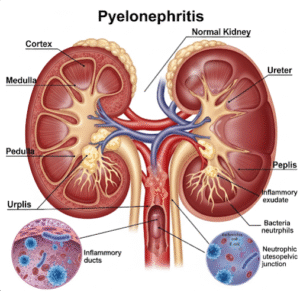South Korea is rapidly transforming from a healthcare innovator at home into a global leader influencing the future of medicine. Known for its advanced technology, strong government planning, and world-class research institutions, Korea is positioning itself as a model for how a nation can blend innovation, policy, and industry to shape global healthcare standards.
Korea’s Growing Leadership in Global Healthcare
1. Strong Government Direction and Coordination
Korea’s government plays a central role in driving healthcare and biotechnology strategy. The establishment of the Presidential Bio Committee brought together different ministries to coordinate national policies on biotechnology, medical innovation, and global competitiveness. This committee focuses on long-term infrastructure development, regulatory reform, and the expansion of research and manufacturing capacity to help Korea become a leading global biopharma hub.
The country’s “bio-great transformation” plan supports hospitals, startups, and research institutions in accelerating medical innovation through funding, international collaboration, and workforce training.
2. Expanding Pharmaceutical and Biotech Influence
Korean pharmaceutical companies are gaining worldwide recognition for their innovation and R&D productivity. Over the past few years, Korean firms have developed more than 1,300 new drug candidates, accounting for nearly 10% of global new drug pipelines.
Major companies like Yuhan, Hanmi, Celltrion, and GC Biopharma are now forming international licensing partnerships, allowing their therapies to reach markets in the U.S., Europe, and beyond. The approval of Lazertinib, a Korea-developed lung cancer treatment, by the U.S. FDA marked a historic moment—showing that Korean science can meet the highest global regulatory standards.
3. A Global Clinical Trial Hub
Korea has emerged as a leading country for clinical trials, even during global slowdowns. Seoul is consistently ranked among the most active cities in the world for trial participation. The nation’s efficient regulatory environment, robust hospital networks, and skilled workforce make it an attractive destination for international drug development.
Institutions such as Seoul National University Hospital (SNUH) have created secure research data platforms that allow global scientists to access anonymized clinical information for collaborative studies. This not only accelerates research but also positions Korea as a trusted partner in global data-driven healthcare.
4. Excellence in Convergent Health Technologies
Korea’s technological strength in IT, AI, and electronics is now powering breakthroughs in healthcare. The country is at the forefront of:
- AI-assisted drug discovery and diagnostics
- Cell and gene therapy (CGT)
- Digital therapeutics (DTx)
- Wearable medical devices and telemedicine platforms
By combining information technology with biotechnology, Korea is creating an integrated health ecosystem that bridges research, patient care, and data management.
5. Development of Bio Clusters and Research Ecosystems
Korea has built innovation clusters such as Pangyo Techno Valley and Osong Life Science Complex, bringing together universities, startups, government agencies, and large corporations in one ecosystem. These clusters accelerate the journey from lab discovery to commercial production, making it easier for new ideas to reach the market.
The Osong complex, in particular, integrates R&D, manufacturing, and regulatory support, serving as a one-stop center for biotech and pharmaceutical growth.
How Korea Contributes to Global Healthcare
Korea’s approach to innovation combines speed, quality, and collaboration.
➡️ Efficient development cycles: Streamlined regulations allow faster transitions from concept to clinical application.
➡️ High-quality production: Korean manufacturers produce world-class medical devices and biologics at competitive costs.
➡️ Diverse data and patient populations: Korea’s advanced electronic health records and national databases contribute valuable insights for international research.
➡️ Collaborative partnerships: Korean firms are licensing technologies and co-developing products with multinational pharmaceutical companies.
➡️ Education and workforce excellence: The country’s emphasis on STEM and medical education ensures a steady flow of skilled researchers and clinicians.
Challenges Korea Must Address
Despite its success, Korea faces several challenges as it expands its global influence.
➡️ Regulatory harmonization: Korea must align its medical and pharmaceutical standards with those of the U.S., Europe, and Japan to simplify international approval processes.
➡️ Intellectual property protection: Balancing open innovation with strong IP protection will be key to sustaining long-term global partnerships.
➡️ Funding and scalability: Continuous investment is needed to support startups and sustain large-scale research projects.
➡️ Talent retention: Korea must prevent the loss of top scientists and medical professionals to foreign markets.
➡️ Data governance: With the growth of global research collaboration, privacy and ethical data management remain critical.
➡️ Market dependence: Overreliance on export markets could expose Korea to international regulatory and trade risks.
Strategies for Strengthening Korea’s Global Impact
Korea’s path to global healthcare leadership depends on maintaining innovation while ensuring sustainability and ethics. Key strategies include:
➡️ Creating Korean global standards: Establish internationally recognized methodologies in AI diagnostics, data ethics, and precision medicine.
➡️ Building global trial networks: Establish overseas clinical research sites linked with Korean hospitals to expand reach and influence.
➡️ Enhancing international data sharing: Use secure cloud and blockchain-based systems to enable global research collaborations.
➡️ Focusing on emerging health challenges: Invest in precision health, microbiome science, longevity research, and next-generation vaccines.
➡️ Expanding South-South cooperation: Collaborate with developing nations in Asia, Africa, and Latin America to provide Korean healthcare technologies and expertise.
➡️ Promoting ethical leadership: Lead international discussions on data privacy, AI ethics, and equitable access to healthcare innovations.
The Future Outlook
Korea’s combination of high-tech innovation, organized governance, and international collaboration gives it a unique advantage in shaping global healthcare. The country’s focus on AI, bioengineering, data-driven medicine, and sustainability positions it as a model for other nations looking to modernize their healthcare systems.
In the future, Korea’s influence will likely expand through:
- Global partnerships for vaccine and drug development
- Greater adoption of Korean medical devices and biotech solutions
- International hospital management and telemedicine models
- Shared data infrastructures that improve cross-border health research
By combining innovation with a patient-centered philosophy, Korea is proving that progress in healthcare is not only about technology—it’s about using that technology to make care more equitable, efficient, and sustainable.













